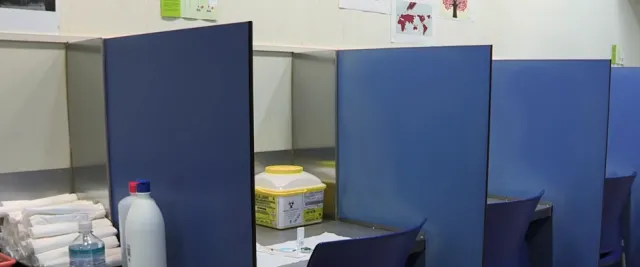Mission
The EMCDDA exists to provide the EU and its Member States with a factual overview of European drug problems and a solid evidence base to support the drugs debate. Today it offers policymakers the data they need for drawing up informed drug laws and strategies. It also helps professionals and practitioners working in the field pinpoint best practice and new areas of research.
Illicit drug use and trafficking are worldwide phenomena that threaten health and social stability. Statistics show that around one in three young Europeans has tried an illicit drug and at least one of our citizens dies every hour from a drug overdose. At the same time, ever-changing patterns in supply and demand call for constant monitoring and dynamic responses.
Independent, science-based information is a vital resource to help Europe understand the nature of its drug problems and better respond to them. It was on this premise, and in the face of an escalating drug phenomenon, that the European Monitoring Centre for Drugs and Drug Addiction (EMCDDA) was established in 1993. Inaugurated in Lisbon in 1995, it is one of the EU’s decentralised agencies.
The EMCDDA exists to provide the EU and its Member States with a factual overview of European drug problems and a solid evidence base to support the drugs debate. Today it offers policymakers the data they need for drawing up informed drug laws and strategies. It also helps professionals and practitioners working in the field pinpoint best practice and new areas of research.
At the heart of the agency’s work is the promotion of scientific excellence. To achieve its core task of providing sound and comparable information on drugs in Europe, the EMCDDA has developed the infrastructure and tools needed to collect country data in a harmonised way. These data are then fed by national drug monitoring centres (Reitox network) to the Lisbon agency for analysis, resulting in a variety of information products conveying the broader European picture.
While the EMCDDA is primarily European in focus, it also works with partners in other world regions, exchanging information and expertise. Collaboration with European and international organisations in the drugs field is also central to its work as a means of enhancing understanding of the global drugs phenomenon.
The EMCDDA works on the principle that sound information is the key to an effective strategy on drugs. Although it does not propose policy, the agency is now making a clear impact on decision-making through the analyses, standards and tools it provides.
Who we are?
- A decentralised EU agency
- Formally established in 1993
- Based in Lisbon, Portugal (operating since 1995)
- A centre of excellence for drug-related information in Europe
What do we do?
- Provide the Community and EU Member States with: 'factual, objective, reliable and comparable information at European level concerning drugs and drug addiction and their consequences'
- Collect, register and analyse information on 'emerging trends', particularly in polydrug use, and the combined use of licit and illicit psychoactive substances
- Offer information on best practice in the EU Member States and facilitate exchange of such practice between them
Why do we do it?
- Inform decision-making on drugs
- Generate a high-quality European evidence base
- Understand what responses work
- Provide early-warning on new threats and developments
For whom?
- Policymakers
- Practitioners and professionals working in the drugs field
- Scientists and researchers








